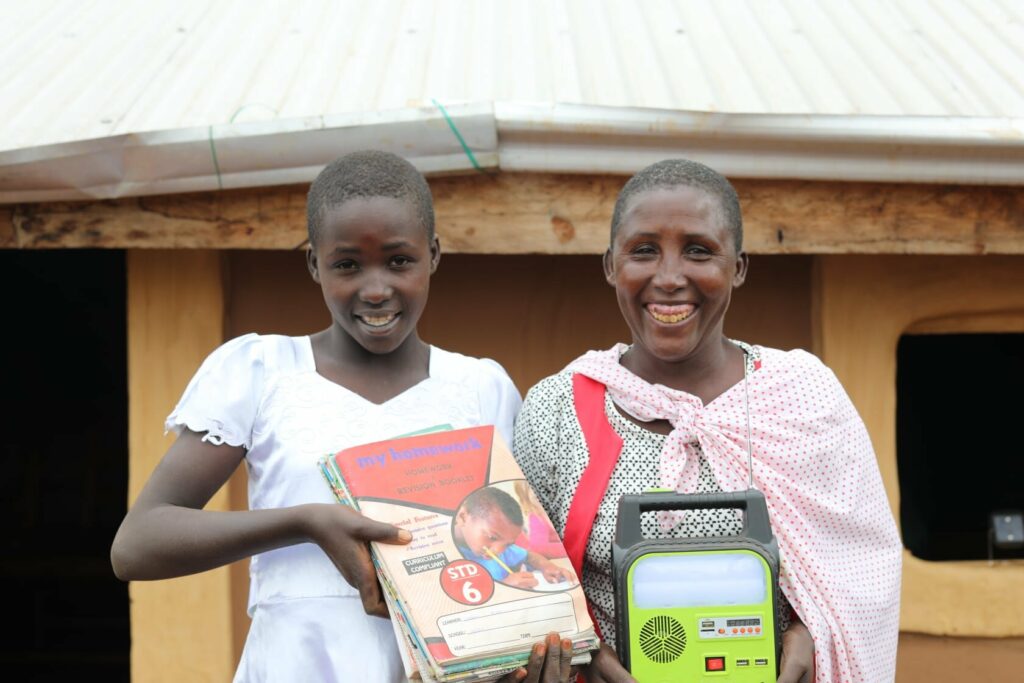The coronavirus is infecting my community in ways that go far beyond the symptoms of the virus that we’ve all heard so much about.
The lives of girls in rural Kenya, where I am from, have long been plagued by poverty, gender-based violence, child marriage, and female genital mutilation (FGM). Kakenya’s Dream offers boarding schools and other programs to help girls avoid and overcome these obstacles so they can get the education they deserve. But with schools closed throughout Kenya since March to slow the spread of COVID-19, the girls in our programs now face greater risks — and new challenges.
Girls are being forced to leave the safety of our residential programs and return to the same dangerous conditions they escaped from in the first place. They are back living in households that cannot afford to provide consistent meals. Many girls are also facing physical and sexual abuse, and are more at risk of undergoing harmful practices like FGM. The rate of teen pregnancy in our particular county was already the highest in Kenya, standing at 40% before the onset of the pandemic. In many cases, these pregnancies were the result of sexual violence and limited access to contraception. Sadly, in the months since the pandemic started, we’ve witnessed this problem grow much worse.
As Jackline, a junior at our high school, explains, “Currently, so many girls in my community are getting married at an early age while others are getting pregnant during this pandemic because it has given us a very long leave from the safety of our schools.”
In addition, too many girls are being forced to put their educations on hold as they resume culturally-expected housekeeping and caretaking roles, including caring for younger siblings, cleaning the house, working the family farm, and making hours-long, dangerous walks to fetch water and firewood for the family. Girls as young as five years old are completing these endless chores from sunup to sundown, leaving many with no energy to open a book and keep up with their studies when they’ve finally completed the day’s work. What’s more, electricity, running water, access to online learning, and basic necessities like soap and disinfectants — amenities that are now deemed crucial to survival during this “new normal” — are completely out of reach.
As two graduates from our boarding schools who are currently in college, Cynthia and Faith, recently explained, “Electricity access and internet is quite difficult for us…it’s truly difficult to balance between house chores, taking care of my siblings, and also studying during the day, so I have to really work a lot during the day…to continue learning and do my assignments and my exams.”
Our students’ parents are also facing growing hardship. Cynthia explained, “Most families have around 10 children…and feeding these families is so difficult for our parents considering that most of them are jobless.” Sadly, these unseen effects of the pandemic are not unique to the girls in our programs; they exist on a much larger and more devastating scale, and they are wreaking havoc on the lives of millions of vulnerable people across the world. According to the UN Population Fund, an additional 7 million unintended pregnancies are expected to occur as a result of the pandemic as well as 2 million more cases of FGM over the next decade due to the delays and budget shortfalls COVID-19 is causing in programs to end FGM. Similarly, an estimated 13 million more child marriages may occur over the next 10 years due to growing economic hardship caused by the pandemic.
Though we may all be potential victims of the virus and its indirect impacts, there is no question that it is disproportionately harming those who have the fewest resources and the least information with which to protect themselves.
How do we ensure that the world’s most vulnerable are better protected from heightened risks during the COVID-19 pandemic?
- We need to start by building awareness about these unseen effects so that we can discover and implement effective solutions.
- We must provide alternatives to online learning in areas where households lack electricity.
- We need to address the reality that frequent handwashing isn’t possible in places where running water isn’t accessible.
- We must ensure access to community-based prevention, protection, and care services for women and girls at risk of domestic violence, FGM, early marriage, and all other forms of gender-based violence.

And despite the economic hardship brought on by the virus, we must find ways to double down on programs designed to create a world where every person can live free from violence. In a recent op-ed, Michelle Obama and Melinda Gates highlight many innovative solutions to support adolescent girls so that they can continue learning and remain healthy, safe, and empowered during and after the pandemic.
Kakenya’s Dream was founded on a belief that every girl, no matter where she is born, deserves a chance to dream, learn, and achieve her full potential. The COVID-19 crisis should not be the reason that reality doesn’t come true for certain people around the world. It is the responsibility of all of us, as a global community, to illuminate the unseen effects of this pandemic and to work together to demand targeted solutions that take care of the most vulnerable among us.
